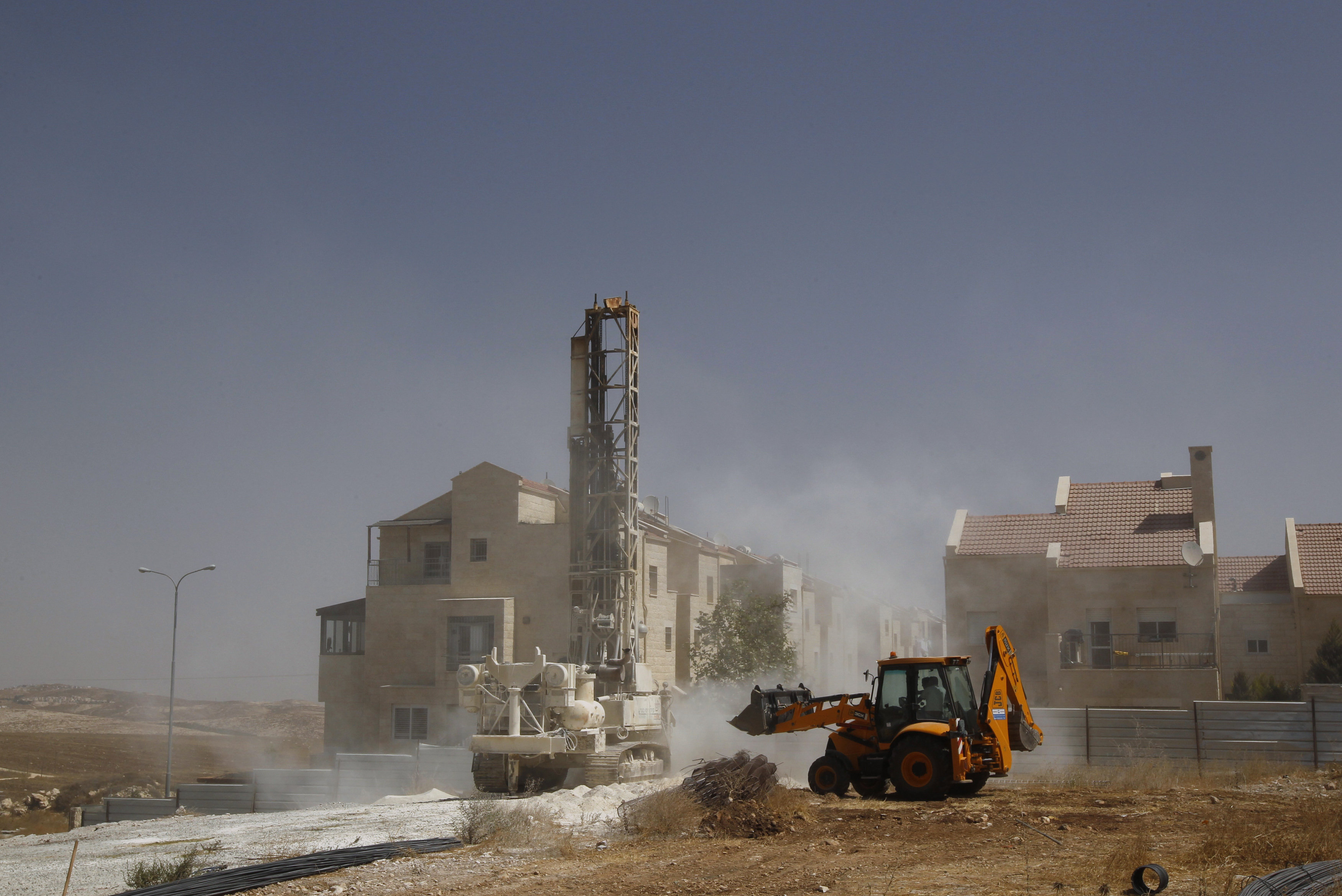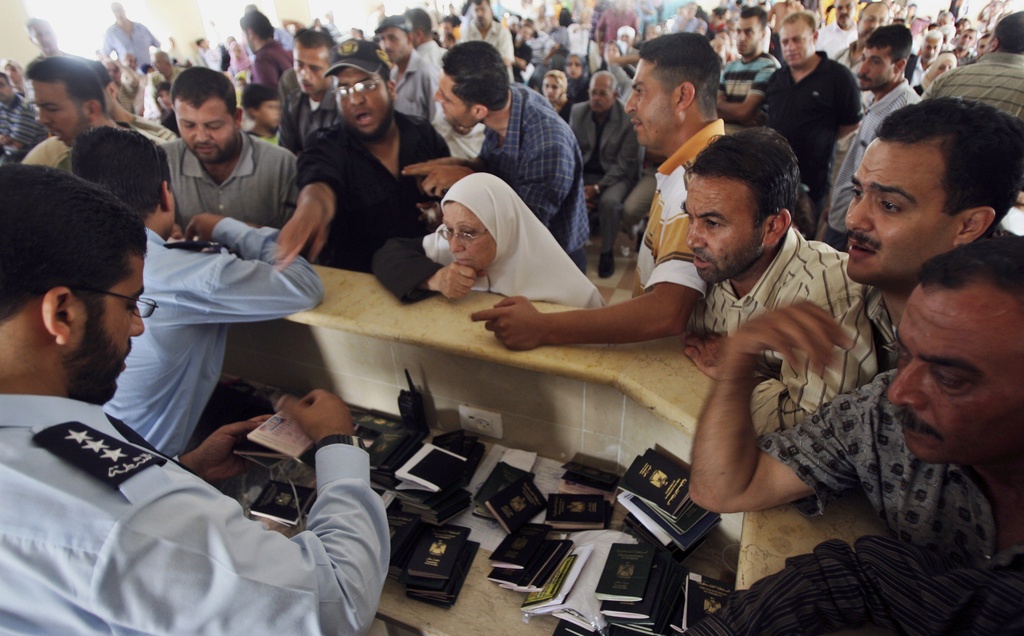Maurer ends controversial visit to Israel

Swiss Defence Minister Ueli Maurer has ended his controversial trip to Israel aimed at cultivating bilateral relations with his defence counterparts.
During his three-day trip Maurer met Israeli President Shimon Peres and Defence Minister Ehud Barak, who invited him. He also visited the Yad Vashem Holocaust memorial in Jerusalem, and military bases on the Israel-Lebanon border and in Tel Aviv.
Following his meeting on Monday with Barak and other top officials, Maurer told reporters in Tel Aviv that talks had focused on a wide range of political and military issues, notably armament, drones, missiles and aircraft.
“The Swiss army has integrated arms systems built in Israel, so high-level technical contacts are necessary,” he explained.
But no new armaments contract with Israel is on the cards, as there is no money at the moment, Maurer said at the start of his trip on Saturday.
According to the Group for a Switzerland without an Army, “intense” military collaboration between the two states has continued in recent years.
Arms exports to Israel are generally forbidden, but Switzerland imports annually SFr64 million ($66.5 million) worth of high-tech military equipment, notably electronic reconnaissance and artillery guiding systems. Joint partnerships have also been pursued, notably in the development of drones, and high-ranking army and air force officials have met regularly, the group says.
The defence minister told journalists that Israel’s internal political situation, settlements and respect for human rights were also discussed during his visit.
But as to the question whether he had outlined the Swiss position, Maurer replied that “Switzerland is not here to give lessons; it’s up to the parties concerned to take decisions.”
Protests
Maurer, who is a member of the rightwing Swiss People’s Party, reminded journalists that he had been invited by Israel and had the backing of the whole Swiss cabinet.
The visit has caused protests back in Switzerland. Some 150 people demonstrated in Bern and Geneva on Friday, and members of the Group for a Switzerland without an Army protested at Zurich airport on Saturday, arguing his visit was “a unilateral support for Israeli military occupation” and undermined Swiss commitment to peace in the Middle East based on international law.
On Sunday Maurer met Israeli President Shimon Peres and visited the holocaust memorial of Yad Vashem in Jerusalem, where he lit a remembrance candle and signed the guest book with the words “Never again”.
Later that day the Swiss minister was flown by helicopter to a military base in the northern Golan Heights region close to the Israeli-Lebanon border, where he reportedly received a briefing on Hezbollah, organized by Israeli military intelligence. He later travelled on to Palmakhim, one of Israel’s biggest air bases at Tel Aviv, for further briefings.
Thaw in ties?
According to the Geneva-based Le Temps newspaper, strategic contacts between the two countries have continued despite tensions. Last January Swiss diplomat Christian Catrina reportedly met Amos Gilad, a senior Israeli defence ministry official, for a discreet working meeting on Iran and Hezbollah.
Some observers say Maurer’s visit suggests a thaw in diplomatic ties.
From 2006-2009, relations with Israel were strained over Switzerland’s policy in the Middle East, criticism of Israeli operations in Lebanon and Gaza, a natural gas deal with Iran and after former Swiss President Hans-Rudolf Merz received Iranian President Mahmoud Ahmadinejad at an anti-racism conference in Geneva.
Switzerland defends its commitment to talking to all parties in the Middle East conflict, including Hamas and Hezbollah.
Balance situation
Unlike the visit to the region by Swiss foreign ministry state secretary, Peter Maurer, a week earlier, Ueli Maurer did not visit the Palestinian territories.
“[Swiss President] Doris Leuthard has also just visited Jordan and [Swiss Foreign Minister] Micheline Calmy-Rey has already visited the Palestinian Authority, so this balances things,” he told reporters.
Maurer underlined the “traditional friendship” between Switzerland and the Jewish state, referring to two states which are “confronted with the same problems in many areas, including security”.
Jean-Pierre Graber, a People’s Party politician from Bern, told Swiss national radio on Sunday that around two-thirds of the party were “pro-Israel” and had a strong attachment to its Judeo-Christian values and culture.
“And for lots of People’s Party parliamentarians, there is degree of sympathy for a country, which, like Switzerland, has an island-like status,” he told the Forum radio programme.
But centre-left Social Democrat Carlo Sommaruga, who was among those trying to stop Maurer’s leaving for Israel, was highly critical of his visit.
“His trip, which has included visits to secret military bases, hasn’t helped the peace process one bit,” he told swissinfo.ch. “Maurer just wanted to implement the People’s Party’s foreign policy, where Switzerland becomes Israel’s big friend in a war-of-civilizations-like scenario.”
A free trade agreement between the members of the European Free Trade Association (Efta) , which includes Switzerland, and Israel was signed in Geneva and entered into force on January 1, 1993.
It covers trade in industrial products as well as fish and marine products. In addition, bilateral agricultural agreements have been concluded between the individual Efta countries and Israel.
Switzerland in 2009 exported goods to Israel valued at SFr927.4 million ($959 million) and imported goods worth SFr381 million.
The main exports were pharmaceutical products, precious stones and metal, machinery, agricultural products, watchmaking products and optical instruments. Imports included precious stones and metal, machines, agricultural products, basic chemical products, optical instruments and watchmaking goods.
The State Secretariat for Economic Affairs in Bern (Seco) notes that the war materials export policy to Israel is “very restrictive” in view of the Middle East conflict between Israel and the Palestinians.
In 2009 war materiel valued at SFr100,638 was supplied to Israel. This was a temporary export and involved processing of parts for F/A-18 fighter jets. In the first half of 2010 no war materiel was exported to Israel.
Switzerland operates drones (unmanned aerial vehicles) whose design and technology is based in part on a system of Israel Aerospace Industries.
Switzerland will have to spend hundreds of millions of francs cutting staff and scrapping equipment as it dramatically downsizes its armed forces, Defence Minister Ueli Maurer told the Sonntag newspaper on Sunday.
Earlier this month, the Swiss government gave Maurer a year to come up with a plan to reduce troop numbers from more than 184,000 currently to 80,000. The government aims to cap defence spending at $4.6 billion annually.
Maurer says the downsizing will entail layoffs within the defence ministry and the army, and a corresponding decommissioning of excess equipment. He suggests the army may have to cut artillery units and not replace Leopard tanks when they reach the end of their working life, for example.
He has defended the cuts as necessary, saying the army would be smaller but better equipped. He also says the nostalgic ideas held by many Swiss about the country’s militia army are outdated.
All Swiss men are required to undergo military training after the age of 19 and must perform regular reserve duty although the Alpine nation hasn’t taken part in a foreign war since 1815.

In compliance with the JTI standards
More: SWI swissinfo.ch certified by the Journalism Trust Initiative















You can find an overview of ongoing debates with our journalists here . Please join us!
If you want to start a conversation about a topic raised in this article or want to report factual errors, email us at english@swissinfo.ch.